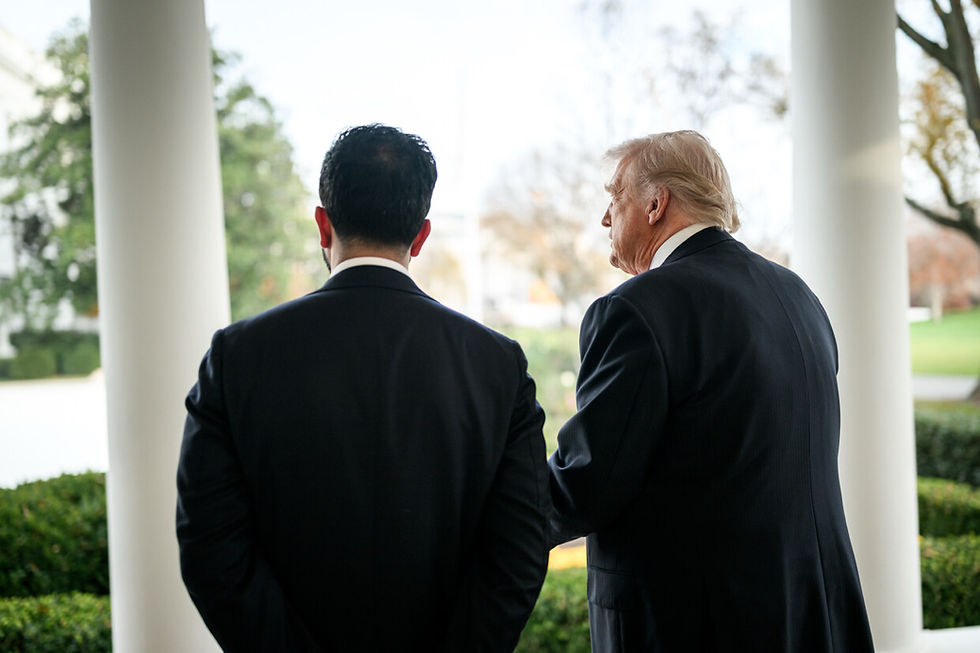Human Rights Rewritten: US Policy Abandons Honesty and the Vulnerable
- Isabel Rodriguez

- Jun 4, 2025
- 3 min read

In April 2025, the Trump Administration and the State Department announced that their annual reports on international human rights would be scaled back, removing mentions of long standing principles of human rights abuses, such as harsh prison conditions, government corruption, and political oppression. These reports, titled “Country Reports on Human Rights Practices,” were legally required documentation by Congress on the “status of internationally recognised human rights.” The 2024 report, which was completed before Trump assumed office, has been re-edited and is yet to be released, with Politico reporting the administration plans to remove sections that referred to diversity, equity, and inclusion (DEI), women’s rights, disability rights, the LGBTQ+ community, and many other topics.
Covering several sections focusing on seven core pillars, Human Rights Reports are, in essence, a vital tool for policymakers, journalists, advocacy groups, businesses, and researchers to get a bird’s eye view of countries needing investment, advocacy campaigns, or broader policymaking. These reports are more than a legally required mandate– they encompass measures of human rights conditions in various world regions, with direct domestic and foreign policy implications.
"What this is, is a signal that the United States is no longer going to [pressure] other countries to uphold those rights that guarantee civic and political freedoms — the ability to speak, to express yourself, to gather, to protest, to organise," said Paul O'Brien, executive director of Amnesty International, USA.
Beginning with policy impacts, Human Rights Reports have often been used to drive policy decisions and programming for various issues, including immigration. Congress created Temporary Protection Status (TPS) in 1990 as a way for migrants to stay in the US, as they cannot return to their home country safely for various reasons. While Trump has consistently attacked this policy, advocacy work for its protections was rooted in the research of the Human Rights Reports.
The right to remain in the US was based on the Department of Homeland Security's assessment that “conditions in the country temporarily prevent the country’s nationals from returning safely.” With that in mind, advocacy groups, such as the US Committee for Refugees and Immigrants, employed details from the reports on “state-directed discrimination and repression by the Taliban authorities against vulnerable groups” to advocate for Afghanistan to be included in the program. As the Trump administration politicises these gross human rights violations, protections continue to be reversed, with Secretary of Homeland Security Kristi Noem terminating Temporary Protected Status for Afghanistan and, most recently, Venezuela, with other countries’ protections expiring later this year and in 2026.
By politicising the reports’ contents, the US is charting a path to undermine the principles of universal, fundamental freedoms, diluting justice and eroding decades of trust in the US as a global watchdog. Omitting these facts creates a situation void of accountability, reducing these crucial reports to a glossy, superficial version of the country’s actual conditions, endangering its local citizens, and scapegoating those responsible.
For example, the Trump administration has decided to omit facts in the El Salvador Human Rights Report regarding prison conditions, such as those in El Salvador’s mega prison, the Terrorism Confinement Center (CECOT). In a report draft reviewed by NPR, the only violations that remained included are reports regarding prison deaths, which are classified as “extrajudicial killings,” and brief mentions of abuse by prison guards in a legally required section on “Torture and Cruel, Inhuman, or Degrading Treatment or Punishment.” President Trump’s policy of sending migrants to detention in this same prison only reinforces this US indifference to human rights, as the country becomes complicit in the ongoing abuses occurring.

"America did not invent human rights. In a very real sense, it’s the other way around. Human rights invented America."- Former President Jimmy Carter, Farewell Address to the Nation, January 14, 1981.
As we await the complete reports from the Trump administration, this situation reflects a troubling and emerging pattern that must be acknowledged: the US is abandoning its democratic ways, traditions, and values, and taking smaller steps toward its authoritarian foes. Between the Supreme Court’s continued quest for power, allowing for Trump’s detrimental policies to transform the fate of millions of Americans, and Congress’s lack of function and inability to legislate and advocate for the lives of working-class Americans, the US is dangerously shifting toward an unrecognisable country, in which human rights become an afterthought.
.png)



Comments